Kristian Williams Famous Quotes
Reading Kristian Williams quotes, download and share images of famous quotes by Kristian Williams. Righ click to see or save pictures of Kristian Williams quotes that you can use as your wallpaper for free.
Where conflicts arise between workers and bosses, between the rights of one class and the interests of the other, the machinery of the law is typically used as a weapon against the workers. Even where the law is contrary to the demands of powerful corporations, the police often act not from principle or legal obligation, but according to the needs of the ruling class. This tendency shouldn't surprise us, if we remember the lengths to which the cops have gone in the defense of White supremacy, even as laws and policies have changed. With class, as with race, it is the status quo that the police act to preserve and the interests of the powerful that they seek to defend, not the rule of law or public safety. The law, in fact, has been a rather weak guide for those who are meant to enforce it.
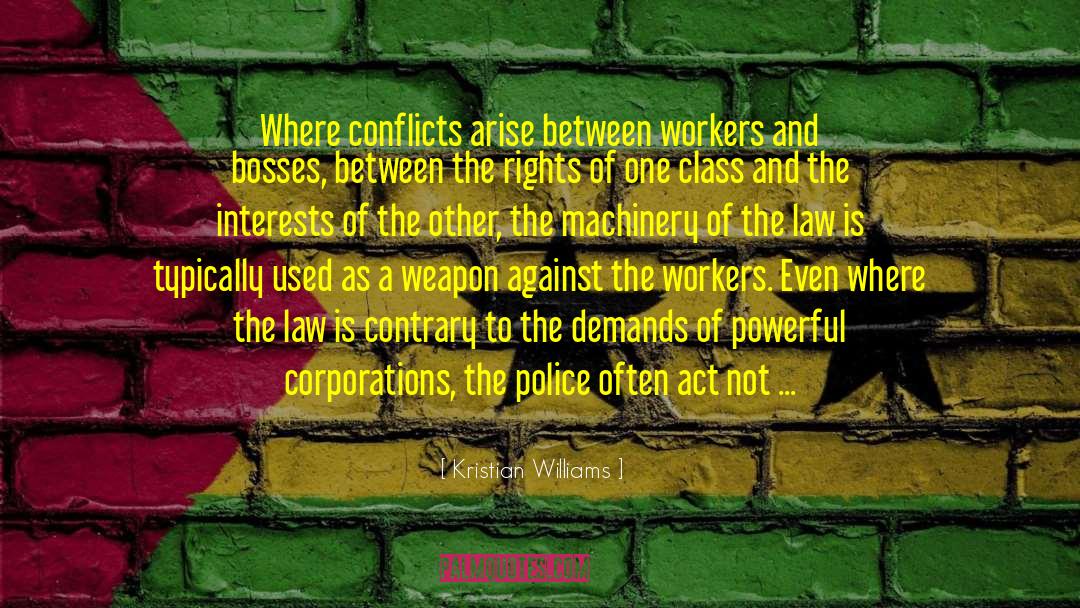
If we accept that police forces arose at a particular point in history, to address specific social conditions, then it follows that social change could also eliminate the institution. The first half of this syllogism is readily admitted, the second half is heresy.
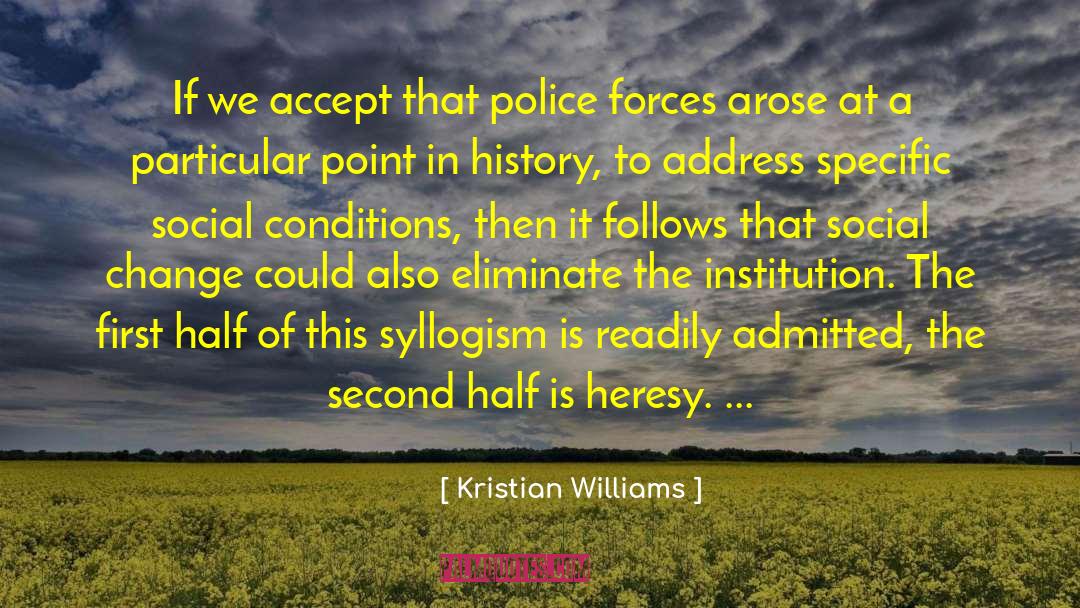
The apparent conflict between the law and police practices may not be so important as we tend to assume. The two may, at times, be at odds, but this is of little concern so long as the interests they serve are essentially the same. The police may violate the law, as long as they do so in the pursuit of ends that people with power generally endorse, and from which such people profit.
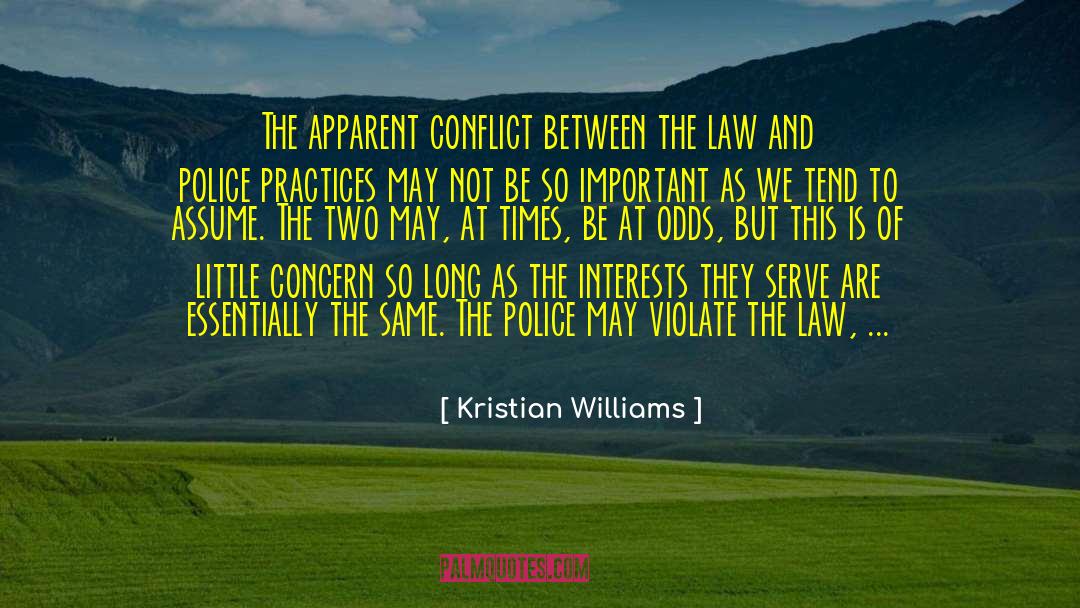
The victims of right-wing violence are typically immigrants, Muslims, and people of color, while the targets of environmental and animal rights activism are among "the most powerful corporations on the planet" - hence the state's relative indifference to the one and obsession with the other.
The broader pattern helps to explain one partial exception to the left/right gap in official scrutiny - namely, the domestic aspects of the "War on Terror." Al Qaeda is clearly a reactionary organization. Like much of the American far right, it is theocratic, anti-Semitic, and patriarchal. Like Timothy McVeigh, the 9/11 hijackers attacked symbols of institutional power, killing a great many innocent people to further their cause. But while the state's bias favors the right over the left, the Islamists were the wrong kind of right-wing fanatic. These right-wing terrorists were foreigners, they were Muslim, and above all they were not white. And so, in retrospect and by comparison, the state's response to the Oklahoma City bombing seems relatively restrained - short-lived, focused, selectively targeting unlawful behavior for prosecution. The government's reaction to the September 11th attacks has been something else entirely - an open-ended war fought at home and abroad, using all variety of legal, illegal, and extra-legal military, police, and intelligence tactics, arbitrarily jailing large numbers of people and spying on entire communities of immigrants, Muslims, and Middle
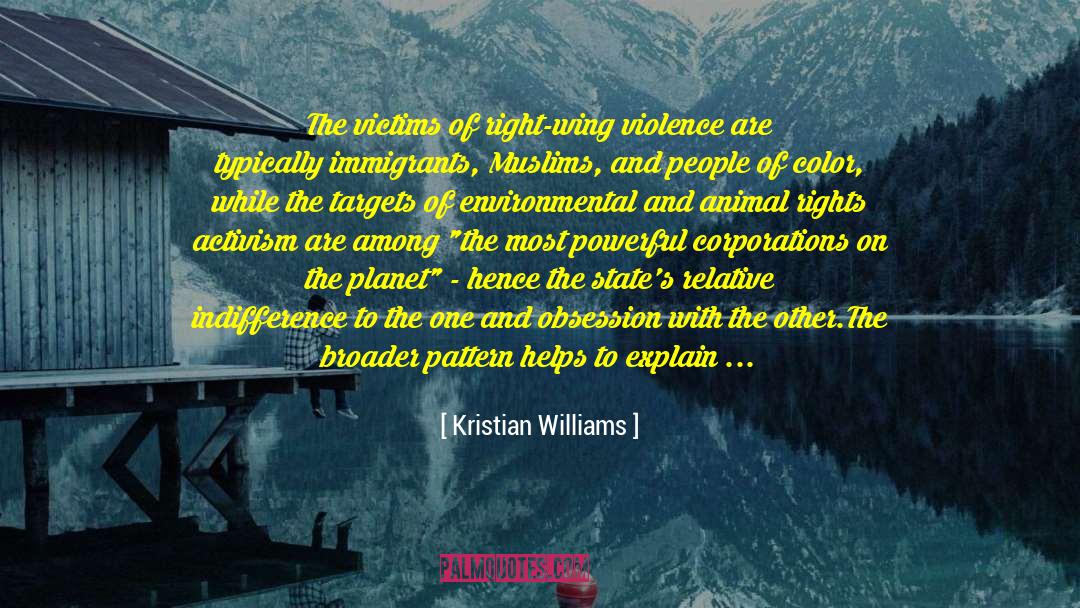
The academic literature describes marshals who "'police' other demonstrators," and who have a "collaborative relationship" with the authorities. This is essentially a strategy of co-optation. The police enlist the protest organizers to control the demonstrators, putting the organization at least partly in the service of the state and intensifying the function of control. (...)
Police/protestor cooperation required a fundamental adjustment in the attitude of the authorities. The Negotiated Management approach demanded the institutionalization of protest. Demonstrations had to be granted some degree of legitimacy so they could be carefully managed rather than simply shoved about. This approach de-emphasized the radical or antagonistic aspects of protest in favor of a routinized and collaborative approach. Naturally such a relationship brought with it some fairly tight constraints as to the kinds of protest activity available. Rallies, marches, polite picketing, symbolic civil disobedience actions, and even legal direct action - such as strikes or boycotts - were likely to be acceptable, within certain limits. Violence, obviously, would not be tolerated. Neither would property destruction. Nor would any of the variety of tactics that had been developed to close businesses, prevent logging, disrupt government meetings, or otherwise interfere with the operation of some part of society. That is to say, picketing may be fine, barricades are not. Rallies were in, riots
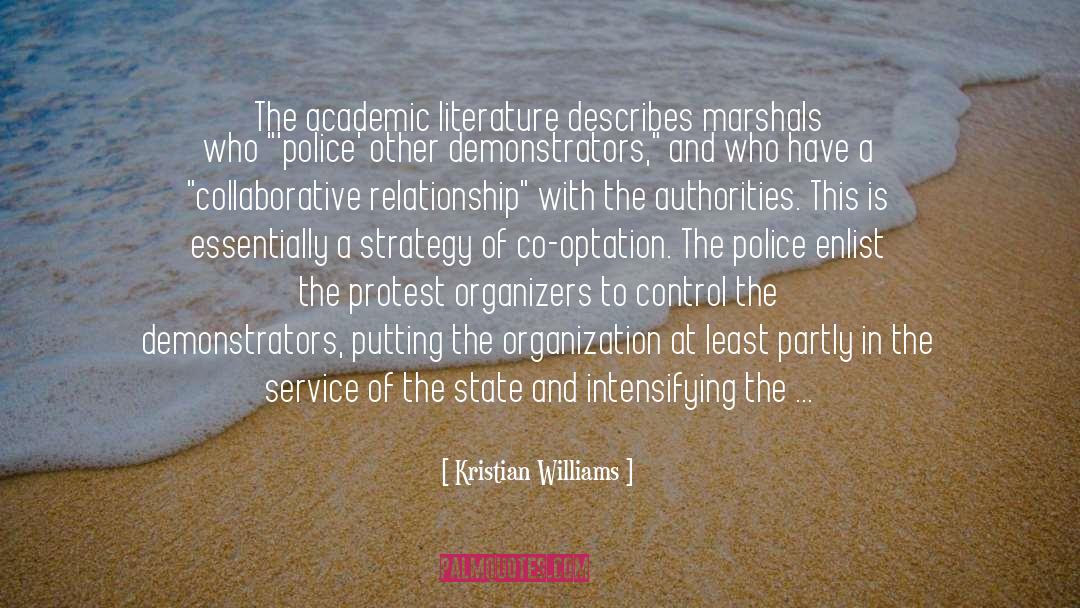
As journalist Matt Taibbi recalls in his book The Divide: It's become cliché by now, but since 2008, no high-ranking executive from any financial institution has gone to jail, not one, for any of the systemic crimes that wiped out 40 percent of the world's wealth. Even now, after JP Morgan Chase agreed to a settlement north of $13 billion for a variety of offenses.… the basic principle held true: nobody went to jail. Not one person. (...)
On the one hand, he finds, "Twenty-six billion dollars of fraud: no charges"; on the other, the San Diego County District Attorney's office conducts 26,000 warrantless, preemptive searches every year to make sure that welfare recipients really are exactly as poor as the poverty bureaucracy demands that they be.

